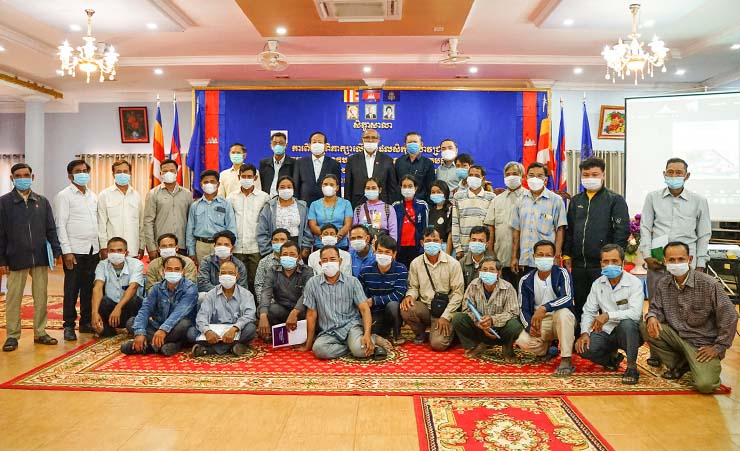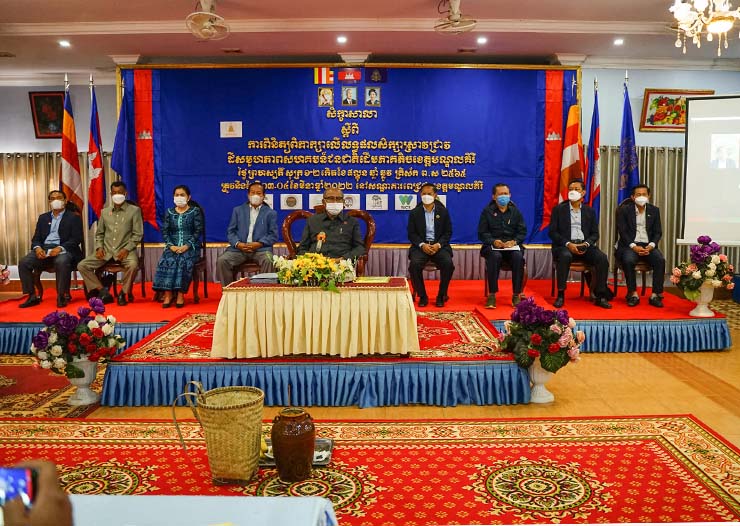
Workshop on reviewing the research results of the working group on indigenous communities in Mondulkiri Province was held in Mondulkiri province from 03-04 March 2022. Participated 109 participants and 16 participants online. This workshop was chairman by HE Ngy Chanphal, Secretary of State of Ministry of Interior, and participated of the provincial council, provincial board of governors, Deputy Governors, district authorities, local village chiefs, community leaders, heads of provincial specialized departments (Department of Rural Development, Department of Land Management, Urban Planning and Construction, Department of Agriculture, Forestry and Fisheries, Department of Environment, Department of Culture and Fine Arts, Department of Tourism, provincial youth working group, and representatives of civil society organizations which including: NGOF, Oxfam, CIPO, WCS, DPA, CLEC, ICSO, ELIE.
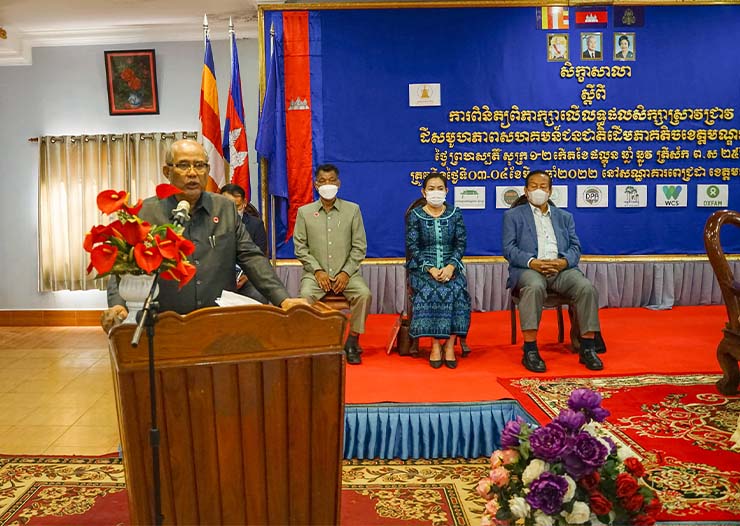
The purpose of this workshop is to: Research and control over control Manage and develop collective lands of indigenous communities. 2. Prepare a draft report identifying specific issues and recommendations or policy options for submission to the Head of Government for review. Four groups of presentations were shared in this valuable workshop
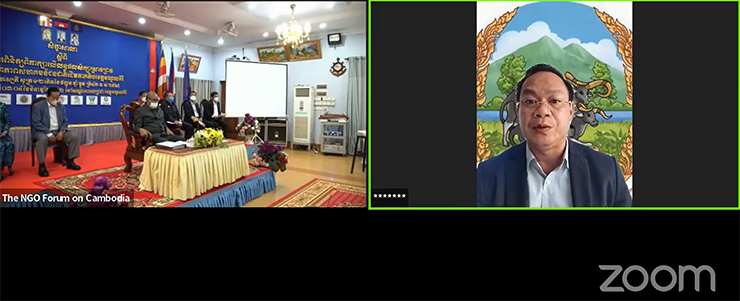
At the beginning of the opening, H.E Thang Sarun, Governor of Mondulkiri Province, welcomed the Excellencies, Ladies and Gentlemen, the Presidium and the participants who are physical and virtual participated in this workshop. He raised that management of Indigenous collective land and natural resources in Mondulkiri Province. Especially, Indigenous people in Mondulkiri province are multi-ethnic, such as the Punong, Kuy, Krang, Jarai, and other ethnic groups living in agriculture and non-timber forest products. Challenges in the management of natural resources are the lack of necessary maintenance, risk management, land management and land registration, which the Mondulkiri Provincial Administration needs to join the working group in conducting research to protect on land safety, Indigenous cultures and customs …etc. Indigenous Peoples’ capacity building in Mondulkiri Province should provide more training in agriculture, eco-tourism services, and development from investors and companies.
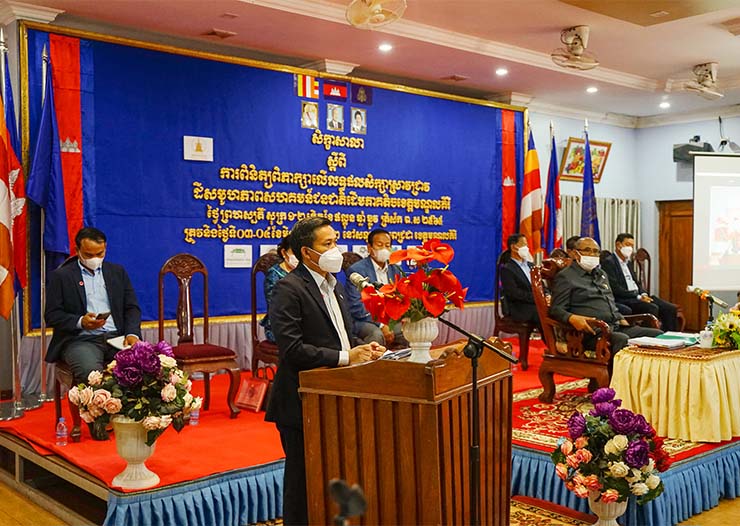
Dr. Tek Vannara, Executive Director of the NGO Forum on Cambodia, Presenting the results of land and natural resource governance in 2021 with cooperation involved all stakeholders, civil society organizations, community fisheries, forestry, etc. and location. In order to promote the rights of indigenous communities to achieve results, there must be 5 arrangements following points:
1. Collective Land Registration and Indigenous Peoples Rights Procedures
2. Strengthen ability of community committees and training.
3. Community requests placement temporarily issue measures to discuss community challenges and recommendations.
4. Working conditions, economic development and conservation, access to infrastructure, and support post-graduate education for indigenous peoples.
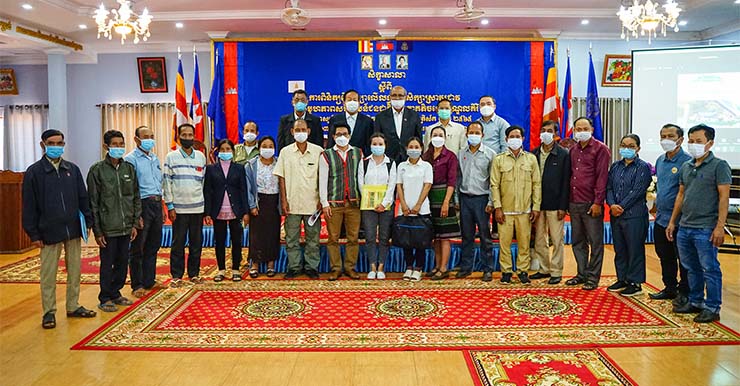
There were four groups to discuss:
– Group 1: Implementing collective community land registration policies and procedures
– Group 2: Community land management and use
– Group 3: Natural Resource Management – Group 4: Land and Natural Resources Management in the future.
As a result, this workshop, you have compiled the document, law and regulation for selection of strategies and improvement needs of working group which will continue to discuss.
